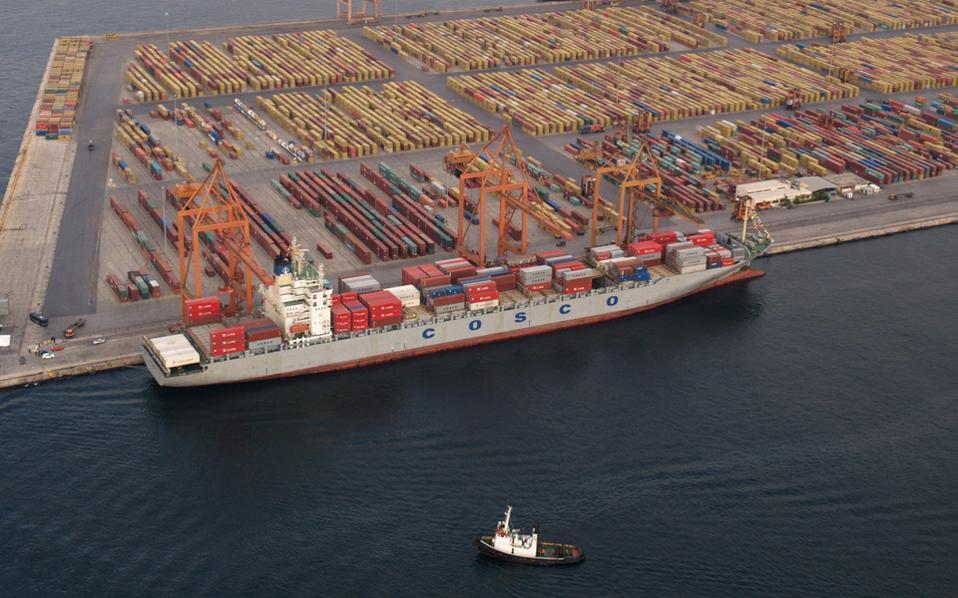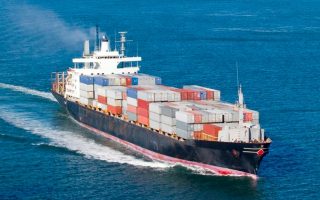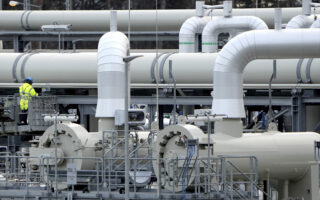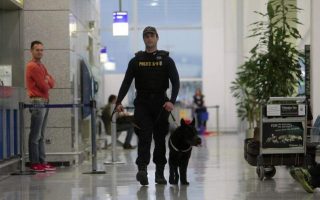The Suez Canal crisis also affects the port of Piraeus

The Suez Canal crisis has started to cause significant delays in the smooth supply of the Greek market with durable consumer goods imported from Asia, such as refrigerators, televisions, computers and cars. At the same time, it has severely hampered the economic recovery of the Piraeus Port Authority (PPA)’s container terminal at Pier I and is now threatening Piers II and III of Piraeus Container Terminal SA (PCT).
The delays, which are expected to last between two and four weeks, are related to the decision by the container shipping giants – CMA CGM, Cosco Container Lines, Evergreen Line and Orient Overseas Container Line – to stop their tri-weekly routes from Asia to Piraeus, which was a stopover to northern Europe. At the same time, other major shipping companies, led by the largest, Maersk, have rerouted their vessels due to a spate of attacks by the Iranian-backed Houthi rebels in Yemen, who are operating in support of the also Iranian-backed Palestinian extremist organization Hamas.
Egypt’s Suez Canal connects the Red Sea to the Mediterranean and is the fastest way to transport fuel, food and consumer goods from Asia and the Middle East to Europe. Shippers use the route to transport around a third of the world’s total container volume, including toys, shoes, furniture and frozen foodstuffs. And as containers originating from Asia are now having to make their way around Africa, Piraeus has gone from being the first stop for these ships to the last.
No one can tell how long this situation will drag on for, since it is connected to the Israel-Hamas war. International military intervention, with warships being sent to protect merchant fleets, has not been able to stop the shipping companies’ decisions in this regard.
In addition to the delays, the longer time it takes these ships to complete their voyage also means that the supply of available transport capacity is limited, with the result that their freight rates, for example the transport costs for companies importing goods from Asia and beyond, have increased significantly.
The new supply chain disruption – following the one caused by the coronavirus pandemic in 2020-2021, which, according to economists, is largely responsible for the acceleration of inflation in the West – threatens to trigger new major price increases.
Meanwhile, as in the previous logistics crisis, the major shipping lines that run the main routes from Asia to Europe have seen their share prices over the past month – a period in which the Suez crisis has been escalating – strengthen. It is, perhaps, telling that the share price of Maersk has gained more than 30%. This situation is undoubtedly expected to affect the financial results of PPA, at least for the first quarter.
Indeed, according to the latest published figures, which relate to the first nine months of 2023, the handling of Chinese-made electric vehicles arriving at Piraeus and being re-dispatched to Europe fully assembled via the car terminal, as well as the revenues from the sub-concession of Piers II and III to SEP contributed significantly – together with the cruise industry – to the growth of the PPA’s turnover to record levels.
Sales increased by 13% to 164.6 million euros, operating profit (EBITDA) by 32.5% to €99.87 million and net profit by 39.9% to €65.88 million. The revenue received in the nine-month period from PCT by PPA (which has subcontracted Piers II and III to PCT for a variable rent linked to the volume of container traffic) increased to €63.2 million from €60 million in the corresponding period of 2022, while the revenue from Pier I, which is managed by PPA itself, increased by €4.1 million to €34.8 million, despite the fact that the volume of containers handled at the terminal fell by 20.4%.
This drop is attributed to the significant shortage of available capacity on the conventional cargo ships operating regular services from Asia to Europe, even before the Suez Canal became a no-go, resulting in the major Chinese car manufacturers choosing to send their vehicles specially packed in containers. Now these cars will take longer to reach European markets and even longer to reach the Greek market. And the problem does not just concern Chinese cars, but also Korean and Japanese ones.
The issue is, of course, expected to also affect the Thessaloniki Port Authority, which, although it operates to a greater extent as a transit port for smaller ships (feeders), will also have to wait for containers to arrive from the longer trip around Africa.





